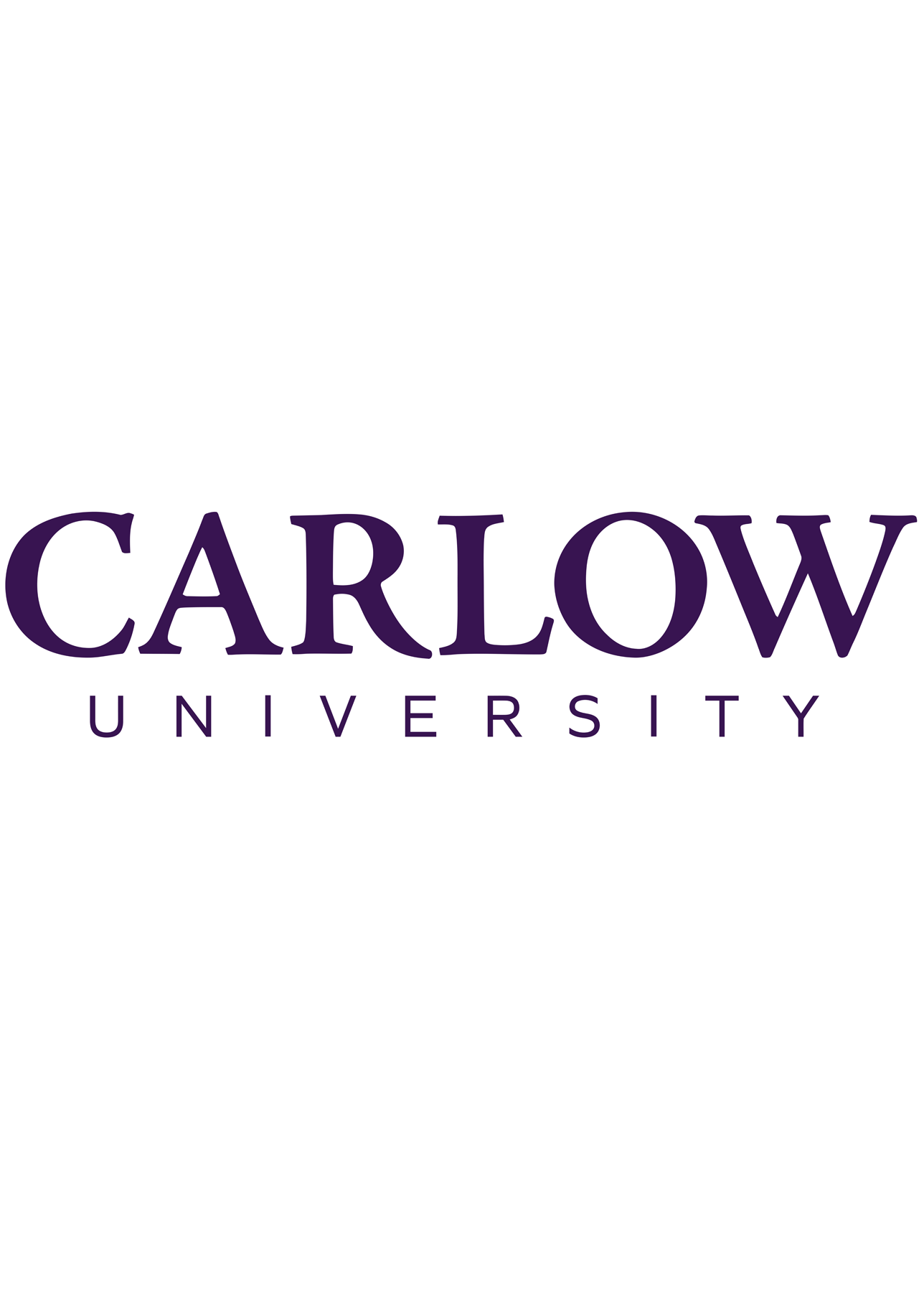Many forensic science positions don’t require a graduate credential, but a master’s degree is essential for individuals pursuing advanced positions and higher pay in criminal justice and public safety. Higher-level roles, such as crime scene investigator or crime laboratory administrator, often require a master’s degree. The Bureau of Labor Statistics predicts that employment opportunities for forensic technicians will grow faster than average for the labor market, and individuals in these roles earn an average salary of $64,940 annually. Other related occupations, such as detectives and chemical technicians, earn median salaries between $55,000 and $75,000.
Most online master’s in forensic science programs require 32 to 36 credits; if a student attends full-time, the coursework should take about two years (four semesters) to complete. Students can expect to pay around $11,000 to $25,000 in total tuition for this degree.
Why Trust Us
The Intelligent.com Higher Education Team is dedicated to providing students with independent, equitable school and program rankings and well-researched resources. Our expert-driven articles cover topics related to online colleges and programs, paying for school, and career outlooks. We use data from the U.S. Department of Education’s College Scorecard, the National Center for Education Statistics, and other reputable educational and professional organizations. Our academic advisory team reviews content and verifies accuracy throughout the year for the most current information. Partnerships do not influence rankings or editorial decisions.
- Analyzed over 2,000 national, accredited, and nonprofit colleges and universities
- 800+ rankings pages are reviewed and updated yearly
- Content is informed by reputable sources, surveys, and interviews with academic advisors and other experts
- Over 100 data points are reviewed for accuracy and quality throughout the year, including sources
How we rank schools
Our list features the best online Forensic Science degree programs at top colleges nationwide. Each school featured is a nonprofit, accredited institution — either public or private — with a high standard of academic quality for post-secondary institutions.
We evaluated each school’s program on tuition costs, admission, retention and graduation rates, faculty, reputation, and the student resources provided for online students. We collected data from trusted sources like the National Center for Education Statistics, individual school and program websites, school admissions counselors, and other data sources. Then, we calculated the Intelligent Score on a scale of 0 to 100 based on the following criterion:
Academic Quality:
- Admission rate versus enrollment rate
- Retention rate of students who return after year one
- Accreditation status (regional and programmatic)
- Nonprofit status, both private and public institutions
Graduation Rate
- Overall graduation rate
- Total number of currently enrolled students, including diversity metrics
- Student-to-faculty ratio
Cost and ROI
- In-state and out-of-state per-credit tuition rates and fees
- Required credits to graduate
- Earning potential after graduation
- Availability of federal student loans, scholarships, and other financial aid options
Student Resources
- Available student services for online-only and hybrid programs
- On-campus amenities like tutoring centers and the number of libraries
Read more about our ranking methodology.
Best 11 Accredited Online Master's in Forensic Science Programs
FiltersInstitution Type
Status
- Intelligent Score
- Alphabetically By University Name
- Acceptance Rate
- Enrollment
- In-state Graduate Tuition
- Out-of-state Graduate Tuition
- In-state Undergraduate Tuition
- Out-of-state Undergraduate Tuition

Oklahoma State University
Intelligent Score: 99.96In-state: $5,357
Out-of-state: $20,877
In-state: $5,531
Out-of-state: $5,531
SAT: 1020-1250
ACT: 21-28
In-State: $323
Out-of-State: $453
Online
Higher Learning Commission
32

Florida International University
Intelligent Score: 99.94In-state: $4,721
Out-of-state: $16,529
In-state: $8,912
Out-of-state: $8,912
SAT: 1110-1260
ACT: 23-29
In-State: $455
Out-of-State: $1,00o
Online
Forensic Science Education Programs Accreditation Commission
32

Stevenson University
Intelligent Score: 99.82In-state: $35,204
Out-of-state: $35,204
In-state: $8,340
Out-of-state: $8,340
SAT: N/A
ACT: N/A
$705
Online
Middle States Commission on Higher Education
36

University of Central Florida
Intelligent Score: 98.56In-state: $4,478
Out-of-state: $19,810
In-state: $6,916
Out-of-state: $6,916
SAT: 1160-1340
ACT: 25-30
In-State: $369
Out-of-State: $1,194
Online
Southern Association of Colleges and Schools Commission on Colleges
32-34

Champlain College
Intelligent Score: 96.31In-state: $64,010
Out-of-state: $68,575
In-state: $19,635
Out-of-state: $19,635
SAT: 1224
ACT: 28
$595
Online
New England Commission of Higher Education
30-36

National University
Intelligent Score: 94.96In-state: $13,320
Out-of-state: $13,320
In-state: $15,480
Out-of-state: $15,480
SAT: N/A
ACT: N/A
$442
Online, On-Campus
Western Association of Schools and Colleges
36

West Virginia University
Intelligent Score: 92.87In-state: $8,976
Out-of-state: $25,320
In-state: $10,134
Out-of-state: $10,134
SAT: 1030-1230
ACT: 21-27
$557
Online
Forensic Science Education Programs Accreditation Commission
30

University of New Haven
Intelligent Score: 92.75In-state: $40,170
Out-of-state: $40,170
In-state: $17,370
Out-of-state: $17,370
SAT: 1050-1220
ACT: 22-28
$1,055
Online
New England Commission of Higher Education
30

University of Florida
Intelligent Score: 92.01In-state: $4,477
Out-of-state: $25,694
In-state: $10,770
Out-of-state: $10,770
SAT: 1290-1460
ACT: 29-33
$575
Online
Southern Association of Colleges and Schools Commission on Colleges
32

Arizona State University
Intelligent Score: 90.77In-state: $10,710
Out-of-state: $28,800
In-state: $11,720
Out-of-state: $11,720
SAT: 1100-1320
ACT: 21-28
$576
Online
Higher Learning Commission
30

Carlow University
Intelligent Score: 90.74In-state: $30,542
Out-of-state: $30,542
In-state: $19,844
Out-of-state: $19,844
SAT: 980-1140
ACT: 19-24
$800
Online
Middle States Commission on Higher Education
30
How to Choose an Online Master’s in Forensic Science Program
Choose your area of study
This degree is typically offered as a Master of Science (MS). Some programs will allow you to select a concentration and focus your studies on a particular niche in this field, such as forensic chemistry, forensic biology, or forensic psychology. If you already know what you would like to do after you graduate, look for programs that closely match these career goals.
Research schools and programs
You should only apply to institutions that have been approved by a DOE-recognized regional accrediting organization, such as the New England Commission of Higher Education or Northwest Commission on Colleges and Universities. These organizations evaluate schools to ensure they provide students with a high-quality education. Those who attend a school that isn’t regionally accredited may be unable to access financial aid or transfer credits to another institution if needed.
You should also look for options approved by the Forensic Science Education Programs Accreditation Commission (FEPAC). This programmatic accrediting organization has particularly high standards for forensic science education.
Consider the following questions as well:
- What support resources do online students have access to? Even online students should benefit from student-related perks and services. Compare your options for tutoring, career coaching, and technical assistance.
- Does the program require a comprehensive assignment or exam to graduate? Most online master’s in forensic science programs feature an applied project or thesis component.
To learn more about any schools that you’re interested in, you can visit the school’s website, contact an admissions counselor, follow the school on social media, or attend an in-person or virtual open house.
Prepare for tests and applications
Application requirements vary by school and program. While some forensic science programs have rolling admissions, most have a precise application date. Plan ahead, as there may be delays in receiving official transcripts or letters of recommendation you need for your application. A personal statement may be required as well.
While not required across the board, some forensic science programs mandate GRE scores alongside your application materials; you may need to factor in additional prep time before sitting for standardized testing. Always contact an admissions counselor to ensure you have the most accurate information regarding requirements and deadlines.
Select your program
Applying to several programs is costly, so narrow down your top choices that match your background, learning style, and professional goals. You should also consider program affordability in your decision.
Before making your final decision, review your needs and goals again. Do you plan to attend school full-time or part-time? Do you want your program to be as online as possible, or are you fine with a hybrid program that has a fair amount of in-person requirements? Some programs offer asynchronous courses, which can be completed at your own pace, while others only offer synchronous courses, which involve remotely attending lectures and completing assignments at the same time as other students — which of these two online learning formats do you prefer? Your school should accommodate your scheduling needs and learning preferences.
Determine how you’ll pay for your degree
Some graduate programs offer scholarships or other funding opportunities, but these are highly competitive. Accredited programs should qualify for federal loans or grants, so make sure you submit the FAFSA. Discuss tuition options with your school’s financial aid and admissions counselors.
Also, many individuals who enroll in an online master’s program continue working while completing their coursework. Share your academic goals with your employer if you currently serve in a public safety or criminal justice role. Some agencies have tuition assistance for employees seeking professional advancement in the field.
Next, we compared this comprehensive list of online PhD programs to a list of aggregated college rankings from reputable publications like the U.S. News & World Report among others to simplify a student’s college search. We pored through these rankings so students don’t have to.
Online Master’s in Forensic Science Programs That Might Interest You
Learn about start dates, transferring credits, availability of financial aid, and more by contacting the universities below.
What Can You Expect from an Online Master’s in Forensic Science Program?
Interested candidates for an online master’s in forensic science should anticipate a comprehensive curriculum integrating theoretical study and hands-on practice. Forensic science is actively changing, and students will learn about the evolving technologies involved in forensic analysis. They will engage in specific training in quality control, safety procedures, and ethics. Many programs are entirely online, though some may feature limited in-person laboratory assignments or residencies. If attending as a full-time student, you can likely complete the program in 18 to 24 months.
Potential courses you’ll take in an online master’s in forensic science program
- Ethics in Forensic Science. In this course, attendees learn the principles and ethics at the foundation of forensic science. Students will read and discuss case studies for common ethical dilemmas.
- Advanced Topics in Human Forensic DNA. This course focuses on current forensic DNA analysis and the technology required for different methods.
- Crime Scene Photography. Students use digital cameras to learn the fundamentals of crime scene photography, including lighting, processing, and printing. Participants will practice their skills via a mock crime scene featuring common examples of evidence.
- Forensic Toxicology. Participants study how drugs and environmental chemicals enter and affect the human body. Students then learn how to test for these substances.
What Can You Do With an Online Master’s in Forensic Science?
Career outlook
There are a variety of career paths available for forensic science technicians. You can be a generalist in this field or specialize in a particular area, such as biology analysis, chemistry analysis, or biometric identity analysis.
Most forensic science technicians work for state or local governments, though they are sometimes also employed by private laboratories that contract with government agencies, law firms, and other organizations involved in criminal justice.
To give you an even better idea of what your options are, here are some of the most common occupations and job responsibilities for workers with a master’s in forensic science:
- Forensic science technician — Collect evidence at crime scenes and analyze evidence in laboratories.
- Median annual salary: $64,940
- Projected employment growth (through 2032): 13%
- New job openings projected: 2,600 annually
- Police officer or detective — Conduct patrols, respond to emergency calls, and investigate crimes.
- Median annual salary: $74,910
- Projected employment growth (through 2032): 3%
- New job openings projected: 64,500 annually
- Biological technician — Help conduct experiments and tests by preparing samples, operating laboratory equipment, and documenting results.
- Median annual salary: $51,430
- Projected employment growth (through 2032): 5%
- New job openings projected: 10,600 annually
Online Master’s in Forensic Science Degree Frequently Asked Questions
How do I apply to an online master's in forensic science degree program?
While each institution is slightly different, most completed applications consist of the following:
- A graduate school admission application
- Undergraduate transcripts in a field related to forensic science (such as biology, chemistry, psychology, criminal justice, or physics)
- A resume
- A personal statement
- Letters of recommendation
- Test scores (many programs still require the GRE)
- An application fee
Some specializations may ask for additional documentation. Many schools also require that your undergraduate GPA surpasses a minimum threshold (typically 2.75 or 3.0). Before submitting your materials, discuss any questions or concerns with an admissions counselor.
How much does an online master's in forensic science degree cost?
You will likely pay between $11,000 and $25,000 in total tuition for a master’s in forensic science degree. Private schools are usually more expensive than public schools, though public schools tend to charge out-of-state students a much higher tuition rate than in-state students.
Online students usually pay the same fees as in-person students, including those for technology and library use, student activities, facility maintenance, and student health. Moreover, many schools charge an additional per-credit fee for web-based courses.
How long does it take to earn an online master's in forensic science degree?
If you enroll as a full-time student, most online master’s in forensic science programs require a two-year commitment, though some are just 18 months. The total number of credits varies from 30 to 36. However, the programs will take longer if you complete coursework part-time. You might also need extra time for more complex components, such as a graduate thesis or final project. Note that some master’s programs require that you complete all the coursework within five years.
Is an online master’s in forensic science worth it?
There’s no reason to be concerned about earning your degree online rather than in-person. A Northeastern University study found that most HR professionals believe degrees earned online are just as valuable as those earned on campus. In fact, many hiring managers even believe online degrees are more valuable, as completing an online program indicates that candidates are self-motivated and have strong time management skills.
Also, advancing beyond an undergraduate education and earning a master’s degree would likely be well worth the time and effort. According to the Bureau of Labor Statistics, workers with a master’s earn an average salary of $1,737 per week, while those with a bachelor’s earn $1,493 per week. This difference can add up to a significant sum over the course of your career.

